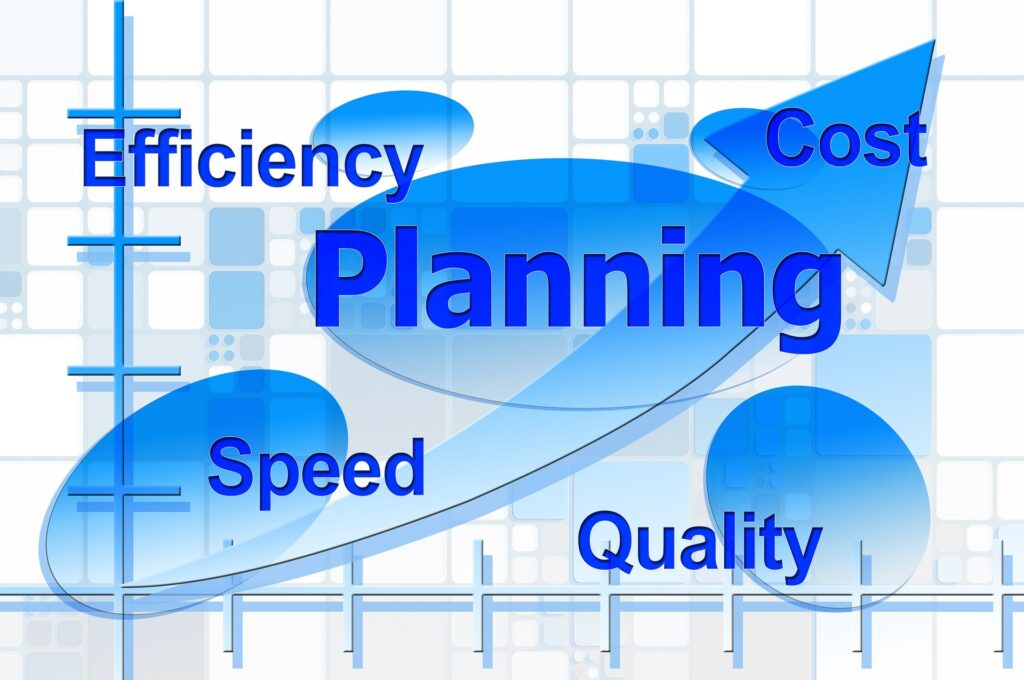Why You Should Hire a Web Development Company
Benefits of prioritizing a web development company to aid your business - particularly startups searching for tangible market shareholdings.
Consumers evolve rapidly, and so do their needs. Thus, companies seeking to maintain a significant market share must regularly engage in product development. Of course, ideas must be developed before the product development process is kick-started. However, not all product ideas are viable. Some companies make the costly mistake of proceeding with a product idea without confirming its viability and possible acceptance in the market.

In fact, according to Forbes, 42% of startups fail due to a lack of market need for their product. Product ideas are undoubtedly great for both small and large businesses. These ideas spur innovation and increase the company’s ability to deliver value to its customers. However, failure to validate the idea can lead to avoidable financial losses and costly consequences like business closure.
Many companies have started avoiding these eventualities by going through product validation before product development. To this end, this article will discuss the importance of product validation for current businesses.
Product validation refers to the checks that are conducted to verify whether a product's features adequately address the consumers' needs and pain points. It is a process used to determine whether there is an existing market need related to the product idea and whether the idea solves the need.
Many times, a good product idea addresses a need, has a Unique Selling Point (USP), and has the potential for profitability. On the flip side, bad product ideas add no value to the consumer and offer nothing new to the general market. These product ideas are likely to have minimal effect on the company’s competitiveness.
Product validation can be an extensive process. However, some major steps companies take during the validation process include the following:
It is important to fully understand the product idea before kick-starting the validation process. At this stage, companies often answer cogent questions on what the product seeks to achieve, its major features, what problems it aims to solve, and who the target market is. This clarification will serve as the foundation for the validation process.
Another step in the product validation process is evaluating the product's market opportunity. This step requires heavy research on the proposed market, including competitors' performance and market share distribution. This step is vital because it gives the company a largely accurate overview of the market’s potential. It also helps the company determine whether the market there are prospects for market entry and if the product will be profitable enough.
This is the most important aspect of the product validation process. Companies seeking to validate their product idea must try it with real users. This is because users are the major determinant of a product's success. If the users are not convinced that the product adds value or adequately solves their issues, they are less likely to use it. Companies use a wide range of tools to execute this step. These tools could range from user interviews and questionnaires to feedback analysis. Regardless of the approach taken, the primary aim is to seek opinions from users and determine whether it would be wise to develop the product.

The importance of product validation manifests in numerous ways. Some of the major benefits include:
Product development is a costly and extensive process. When companies fail to validate a product idea, and it ends up failing, the funds expended on the development will be lost. Many companies cannot afford such financial waste. Moreover, companies risk losing investors' trust when they make such drastic financial mistakes. Product validation helps companies evade financial losses, as it helps them ascertain the profitability of a product before the product development process is approved.
The purpose of product validation is not to throw ideas out. On the contrary, it can help companies discover how they can improve their ideas for the market. Given that users are allowed to give their opinions on the proposed ideas, companies can utilize this input to improve the idea and make it better suited to solve users' needs.
As stated earlier, users’ needs are rapidly evolving. They are also demanding more value from companies. Product validation helps companies connect with users and develop products that suit their needs. Users are likely to feel more connected to brands when they have a say in the product development process. Product validation can also help reinforce the fact that your company prioritizes users’ opinions.
Product validation promptly takes bad product ideas out of the way. This gives your business enough room to go back to the drawing board and devise more market-fit products. Also, because of the research done during the product validation process, your company will likely have more knowledge of the state of the market and users' needs. This information will give your company insight into innovating products that will compete effectively in the market.
This is, perhaps, the most apparent benefit of product validation. Since product validation increases your company's ability to develop better products, profitability will also be enhanced. Thus, you will be better positioned to recoup your development costs and gain significant profit.
Risk is undoubtedly a crucial part of any business. You might need to undertake some risks to get ahead of the competition. However, evading product validation is not an advisable risk to take. The outcome of such risk is way too costly, and it can even crumble your business. Thus, businesses must consider product validation as a necessity. Where YouDigital comes in is that we possess cross-industry experience in building your custom-specific products and solutions. We also offer project rescue services for your IT projects to prevent them from failing. Reach out to us and we can collaborate on how best to support your product ideas.
Benefits of prioritizing a web development company to aid your business - particularly startups searching for tangible market shareholdings.
Risk is undoubtedly a crucial part of any business. You might need to undertake some risks to get ahead of the competition. Most companies have an
As businesses seek to expand their operations, the need to scale software development, develop software in Poland and cut costs will become even more prominent.
REQUEST PROFILE